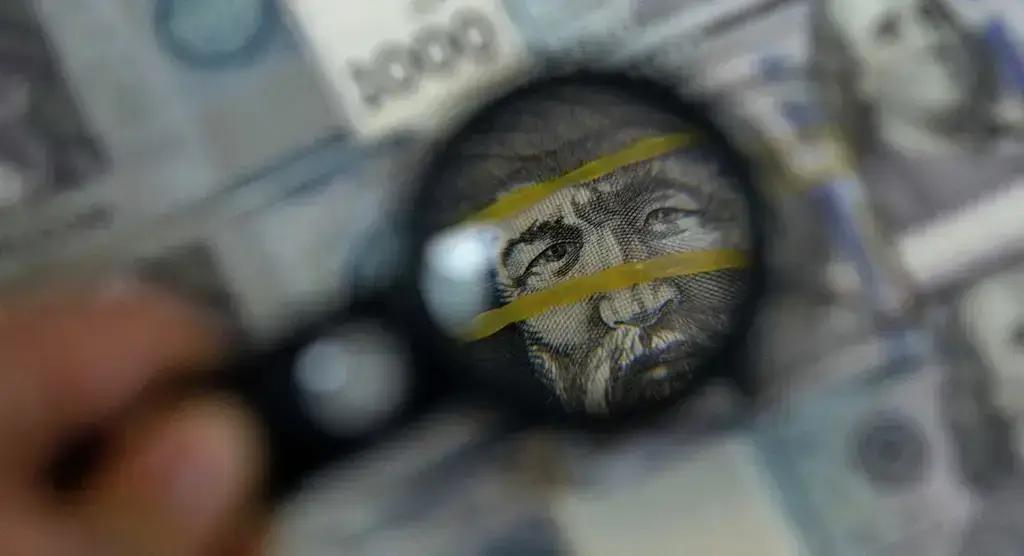
Published
10/17/2024, 14:42Experts have discussed trends and prospects of the banking system of Kyrgyzstan and Central Asian countries under secondary sanctions at a round table organised by the ‘Oi Ordo’ Centre for Expert Initiatives in Bishkek. The debate touched upon many key issues related to the current state of the country's financial system. The experts dwelt separately on the National Bank's role.
According to experts, the regulator's activity no longer meets the requirements of the modern economic context. Thus, President of the Eurasian Union Commodity Exchange Mikhail Petrov, pointed out that the NBKR's functions have not changed since the 1990s, although the situation has changed dramatically over that time.
’ During the last decades, our country's financial system has been seriously criticised by experts and the public. One of the key problem nodes is the National Bank's activity, functioning under the charter developed in the 90s,’ Petrov emphasised.
According to the expert, at that time our economy and political system were in a state of serious transformation and strong influence from Western countries and international financial organisations, but today the situation has changed.
THE NEED FOR FINANCIAL REFORMS
"The system laid down at that time focused the National Bank's main task on maintaining the stability of the KGS exchange rate, leaving economic growth and development issues outside its functions. This decision led to long-term consequences that currently prevent the country from unlocking its potential and efficiently utilising its resources,’ Mikhail Petrov noted.
Thus, the National Bank in the current configuration does not contribute to the country's economic development. Its functions do not include tasks related to supporting large projects or stimulating economic growth.
"In the course of analysing the work of national banks of other countries, especially Japan, conclusions were drawn that the priority of the National Bank's policy does not correspond to the country's needs. For example, in Japan, despite the devaluation of the yen over the years, the main focus of the Central Bank remains the stimulation of economic growth. This has enabled the country to develop a high-tech economy, even despite the pressure from Western countries,’ he continued.
According to Petrov, with the existing wealth and potential of the economy, we remain dependent on external lending, as the need to revise the financial system is overdue. Moreover, the current situation, he said, requires radical changes in the National Bank's work and the state policy as a whole.
"It is essential to change legislation to enable the National Bank to participate in the long-term development programme design and implementation. It is also necessary to introduce targeted emissions, which will be aimed at financing strategic projects inside the country. This will allow the country to get rid of dependence on international creditors and start developing its economy at the expense of domestic resources,' the President of the Eurasian Union Commodity Exchange says.
OUR CURRENCY IS HIGHLY UNDERVALUED
In the expert's opinion, maintaining the current exchange rate will lead to an even deeper dependence on external creditors and the loss of the opportunity to use its resources for development. Therefore, in the coming years, it is necessary to carry out reforms, which should be aimed at ensuring that the national financial system stops serving foreign interests and starts working in the interests of its economy.
"The basic problem relates to the fact that the national currency is undervalued. While we have a fully secured national currency, its subsoil and gold supply, according to some data, is 250-300 times higher than the official information. This imbalance significantly restrains economic growth, creating obstacles to financing infrastructure and industrial projects. The undervaluation of the currency is because its real value should reflect the value of all the natural resources that Kyrgyzstan has at its disposal. These are not significant reserves of gold only - over 50 tonnes, but also rare earth elements, iron, copper and other valuable minerals. With a proper assessment of resources, the national currency could serve as a powerful driver for the economy,’ Petrov emphasised.
At a time when the country has a unique transit potential and a strategically important geographical location, further preservation of this system could lead to a loss of economic opportunities.
TRANSPORT CORRIDOR AND ENERGY INDEPENDENCE
One of the key measures to overcome the crisis is the transport infrastructure development. Kyrgyzstan is strategically located at the crossroads of important trade routes connecting the North with South and Central Asia.
"Building a railway, its electrification and providing energy through a nuclear power plant could radically change the economic situation in the country. However, such projects require significant investments, which are currently covered by international loans with high interest rates,' the expert points out.
Despite its natural resources and favourable geographical location, Kyrgyzstan has already missed several important economic and political opportunities.
"One such missed opportunity was former President Akayev's initiative to create the Shanghai Cooperation Organisation (SCO), where Kyrgyzstan's role has proved to be limited. Recently, the country also failed to seize the chance to join BRICS - the organisation which experts believe will become a crucial mechanism in the global economic and political development,’ Mikhail Petrov concluded.
Joining BRICS, especially participation in the interaction mechanisms of member countries' central banks, could provide access to liquidity and new opportunities for international settlements, which is particularly relevant in the context of increasing financial difficulties.


